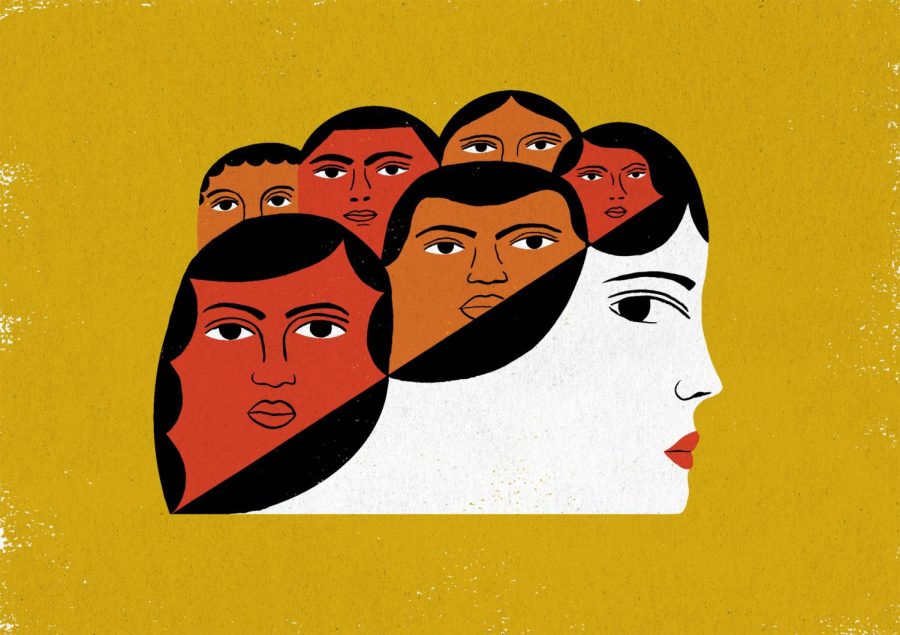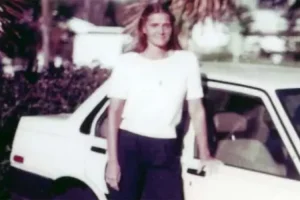Letter to the Editor: Why social justice is important to me
March 15, 2020
I’m writing this because I feel like I have to. I think this needs to be heard. I think more people need to hear other’s personal stories. Constantly feeling misunderstood, misrepresented, unappreciated, and having to explain myself and why I fight for social justice is something I am tired of doing.
I am a person of color (POC). I always have been and will be. Being a POC has been an identity that I have struggled with my whole life. I grew up with a white family, always pretending that I could be a white person. I didn’t know it, but I was ashamed of who I was, where I was from, and the color of my skin.
I thought that being “seen as white” was better than embracing who I was. It’s not that I was explicitly told that white was better, but what I later found out is that society was and is already set up to “embrace the white agenda.” What I mean by this is that the system, yes the system – think as broadly as you can about the society and the government and set social rules that exist – was created to benefit people with white skin or present as white.
I’m not saying it’s the present-day white people’s fault, but it is white people’s responsibility to be aware of this. I mean really aware of this. It has only been more recently since I was able to identify the concept of systemic oppression. I’d heard of privilege and white privilege and knew what oppression was, but I was never aware or taught how ingrained the oppression is in our formal and informal society.
A formal example being that the death penalty was created by the government as a legal way to murder African Americans. Once lynching became more “looked down upon,” the government came up with a way (a system) to push certain people in the direction of the death penalty which truly was made to be the “legal” excuse for executing African Americans. We can also look at the statistics. Let’s talk about the demographics of prisons. Let’s compare sentences for crimes of POC vs. white presenting folx for committing the same crime.
What about less “formal” examples of systemic oppression? I think of things like pipeline schools, colorism, and racial profiling. I recently had a friend of mine, who is and identifies as white, tell me that they speed going home from college all the time. Once they passed a cop and were “lucky” enough to not get caught. It immediately reminded me of other stories I’d heard from other college students who identified as black males.
They shared multiple experiences of themselves and friends being pulled over and even taken into a station for the same or similar small “crimes.” You may think; well, they were breaking the law, but so was my white friend. But my white friend doesn’t have to worry about getting not just caught, but PICKED because of the color of their skin. It’s not just a problem that it’s happening; the bigger problem is that people aren’t even aware that this is some people’s everyday lives. Can you imagine living in fear every day because of the color of your skin?
Another thing I like to mention when I try to express the importance of social justice is the topic of Black Lives Matter (BLM) and Blue Lives Matter. The biggest thing I want to be taken away is that being a cop and putting on that uniform is a choice. Being a POC is not a choice. Not only is the uniform a choice, but the uniform can also be taken off. Your skin color cannot be taken off. You don’t get to choose when you’ll be judged by what is presented on the outside. It is an identity that follows you every second of your life.
In my opinion, the problem is two things. Most importantly, the police force was built off of an oppressive system. Period. That can’t be changed, the past can’t be changed, but it can be acknowledged. People aren’t inherently bad, I don’t believe, but we were all born into a human societal system built to support some and hold back others. Going off that point that people aren’t inherently bad, I do not and believe, and I think other folx would back me up on this, that all cops are bad, and that is not the message that is trying to be portrayed when people feel upset about BLM being confronted with Blue Lives Matter.
I think the last message I want to address is one of the biggest reasons I’m writing this. It ties into a lot of what I have already said. But listen here – I think most people would agree with me that most people believe we should live in an equitable world or at least, that’s what people will say they believe in. I commend the folx who have these conversations. It is super important.
But, it is also important to know that after recognition, talking about social justice is just the beginning. Simply put, there is a difference between not being racist/oppressive and being anti-racist/anti-oppressive. Just because you have the conversation from time to time, doesn’t mean you’re helping solve the issues, especially if these conversations only exist in spaces created specifically for social justice conversations.
The frustrating part for myself and from what I’ve heard from other people that identify as POC is that while this conversation exists in a designated space, once the conversation is over, white folx can “go back” to their “normal” lives that are inherently built and systemically supported for white presenting folx.
POC have to take that conversation out of the room with them and live it 24/7. POC don’t get to choose when these conversations happen and when they are important because one, it’s important all the time, and two, it affects them all the time. This is my biggest critique to folx who think they are doing good Social Justice work. It’s not that it’s not good, it’s just not enough.
I also want to note that there are a lot of minority and/or marginalized identities that I did not include in my thoughts here. As far as the multiple marginalized identities that I, myself, hold, I believe that this message applies to those identities as well. I hope this helps anyone to better understand why I think social justice is such an important topic to think about.
There is one last thing I want to address. I’ve spent a lot of my life thinking about how I can help others before I realized that being an educator is about supporting students to be able to help themselves. I think helping is great, but the questions are what causes are you helping and are you really helping. If you truly believe in change, then we need to attack systemic oppression.
I see the steps as recognizing systemic oppression, vocalizing, not perpetuating it, and fighting it at its root. My go-to example of this is some cities “solutions” to homelessness. There has been something created that is recognized as “anti-homelessness architecture.” What this really means is creating spaces where homeless people cannot stay, like spikes under sheltered areas and benches with divides or other manners of preventing sleeping on them.
The problem with this is that it may prevent homeless people from staying in that location, but it drives homeless people elsewhere and more importantly, doesn’t help to eradicate the problem of homelessness. So to connect these ideas, one can donate clothes/items to the “less fortunate” or participate in volunteer activities, but if you’re not helping to break and change the system, you’re only helping to deal with the consequences of systemic oppression, not the root of these problems. This means that systemic oppression will persist and continue on. So I leave you with a few quotes that resonate deeply with me.
“Injustice anywhere is a threat to justice everywhere.” -MLK
“The world is a dangerous place, not because of those who do evil, but because of those who look on and no nothing.” -Albert Einstein
“Justice will not be served until those who are unaffected are as outraged as those who are.” – Benjamin Franklin
Last and certainly not least, thank you to everyone in my life that has helped me to be able to understand myself more, dive into the work, and supported me through my lifelong journey.
_________________________________________________________________________________________
Letters to the Editor do not reflect the beliefs or values of The Racquet Press. The author of this letter chose to remain anonymous.






